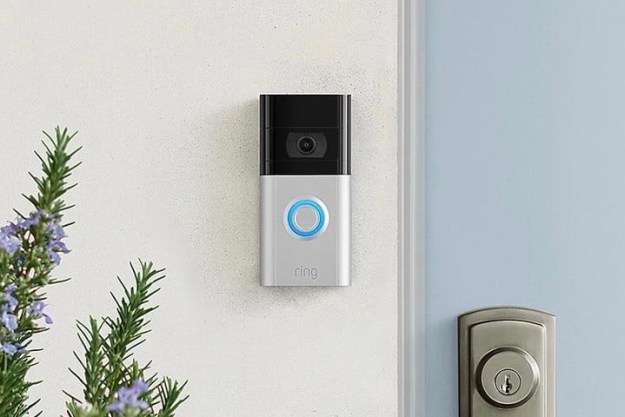Parents want to buy the latest and greatest toys for their kids, but they also want to keep them safe. Cybersecurity and fun have crossed paths in a strange intersection of the modern world in the form of smart toys, connected devices that open themselves up to security risks. The idea of someone hacking a toy or home device isn’t a new one; in fact, multiple stories have appeared over the past year of hackers breaking into smart home devices and tormenting the homeowners.
For a parent, the idea of a stranger hacking one of their children’s toys is nothing short of a nightmare, but these days, it is a definite possibility. While nothing is 100% hack-proof, there are some toys that should be avoided outright. These “smart” toys have known security flaws that make them vulnerable to malicious entities.
R2-D2 App-Enabled Droid by Sphero

This R2-D2 Droid has a lot of appeal for anyone, but especially Star Wars fans. It can be driven and controlled via the app and swap between the iconic bipod and tripod stances. It has a powerful speaker and a full set of LED lights that make it one of the most realistic R2-D2 droids out there, aside from its minuscule size. Despite how cool this toy is, there is a downside.
The app that controls the droid can grant someone access to the rest of your mobile device since it is connected to the internet. While someone would not be able to communicate with your child, their personal information (if you create an account just for them) would not be secure.
Osmo Genius Starter Kit

The idea behind the Osmo Genius Starter Kit is a great one. It’s full of educational games that stimulate a child’s imagination and help cultivate a joy in learning new things, and it comes with five games that include numbers, Tangram, words, Newton, and masterpiece. It works in conjunction with the iPad, which gives the kit the ability to utilize the iPad’s camera.
These sorts of apps do not have rigorous security settings, which means it could be possible for a third party to access the camera and spy on your children. While it is possible to revoke security permissions to the camera, it is better to be safe than sorry.
ToyMail Talkie Unicorn

The ToyMail Talkie Unicorn operates on the basis that your child can send you a message at any time and that you can send one back. This cute toy has two-way audio that operates a lot like a walkie-talkie, but it uses your smartphone to work. The concept is solid; after all, a toy that kids can use to contact their parents anytime they feel sad or lonely seems like a great idea. The problem is that it can be hacked, which means anyone could talk to your children.
These toys are much like the CloudPets line of toys that were pulled from sale after multiple security flaws were discovered. If a toy has two-way audio, avoid purchasing it for your children.
Xtreme Life Wi-Fi Teddy Bear

A teddy bear seems innocent enough to give as a gift, but when a camera is embedded inside, there’s a totally different intent behind it. The Xtreme Life Wi-Fi Teddy Bear is sold through many outlets as a sort of nanny cam for your kids. But considering that it’s connected through Wi-Fi, which gives parents the ability to remotely view what’s going on in the home, the potential of it being accessed by others is always there.
If a big name such as Ring is having so many issues with its cameras being hacked, there’s always the possibility of something like that happening with this. It’s worse for those who don’t secure their Wi-Fi networks at home, which would allow just about anyone the ability to tap into the camera remotely.
Kids GPS enabled smartwatch

Today’s Apple Watch may be too complex for kids, which is why kids smartwatches exist. Their intent is to keep kids connected with their parents since the watches can do so much. This particular one from Amazon is screaming for attention with its kid-friendly design and features, but you may want to hold off because of the potential risks involved here.
For starters, it does offer cellular connectivity for phone calls — as well as built-in GPS for tracking. There’s also a two-way walkie talkie feature between the smartwatch and mobile app. Imagine all the security concerns regarding GPS data and the potential of it being compromised to allow unwanted strangers talking to your kids.
Be smart, be cautious
The idea of “smart toys” is growing in popularity, but the annual “Trouble in Toyland” report warns against purchasing this kind of toy due to the risks inherent in it. While there is no evidence that hackers are targeting children through their toys, it is still a risk that no parent wants to open themselves up to. Focus instead on purchasing toys from known and trusted retailers that do not require a profile for your child and that do not use two-way audio or a camera.
Editors' Recommendations
- iRobot Roomba Combo j9+ vs. iRobot Roomba Combo Essential: Which is better for you?
- Yale’s newest smart lock is designed for renters
- How to convert your window blinds into smart blinds
- Echo Hub vs. Echo Show 15: Which is the best smart home gadget?
- Echo Hub vs. Echo Show 8: Which is the best option for your smart home?




